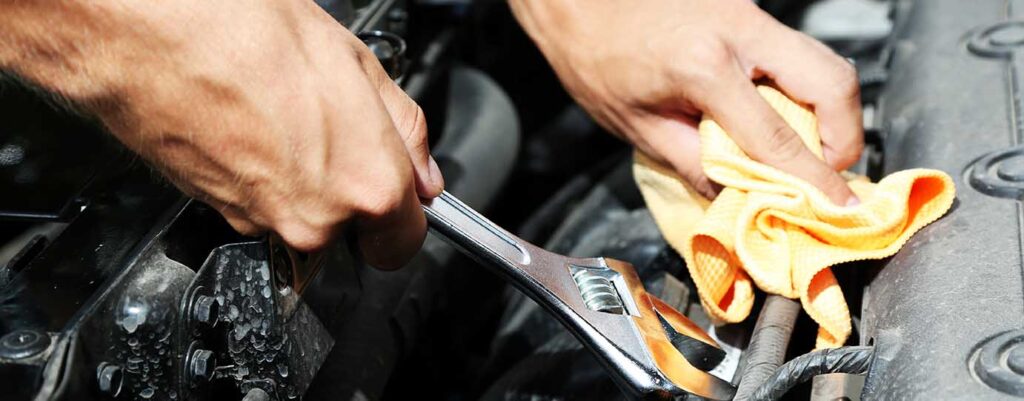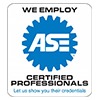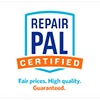
People often see a commercial for ” Car Care” and don’t know exactly what it means. Well Car Care means exactly what it implies, caring for your car. But what are all these cares and shouldn’t all auto repair shops maintain the care of my car, SUV or Truck? Many auto repair shops may do a great job at a certain tasks not all shops are the same. For instance, when you bring your car, SUV or Truck to Orozco’s Auto Service for maintenance, we give your vehicle a 21 point inspection and then make recommendations for your car’s care. Additionally, we always maintain detailed records of any maintenance or repairs we perform. Another benefit of our regular car care is you can later prove that your vehicle has been well maintained, and this will always pay off when your ready to resell it. Lastly, it’s important to know that regular car care comes at a cost, while it’s not always cheap, it can ultimately help you avoid future costly repairs.
Below are some Car Care tasks you can handle on your own and some that you should leave to the pros at Orozco’s Auto Service of Fullerton.
Personal Car Care
OIL AND FLUID LEVELS
Every month, or every few gas fill-ups and especially before any longer road trips, it’s a good idea to open the hood of your car and check your fluids. This can include the oil, brake fluid, steering fluid, transmission fluid and coolant levels while the engine is cool. Low levels of either can lead to engine problems if left unchecked. Always refer to your owner’s manual to locate the inspection ports on your specific vehicle.
REPLACE WINDSHIELD WIPERS
Windshield wipers usually need to be replaced about once a year due to the diversity of Los Angeles weather, or if the effectiveness of cleaning your windshield is compromised. One simple trick to check your wipers is use the windshield wiper-washer occasionally to check the effectiveness of your wipers before you’re stuck in the rain.
TIRE PRESSURE
Now days with todays gas prices it’s more important that ever to have well-maintained tires that are not only safe but also fuel-efficient, make it a habit to visually inspect your tires often. Check your tire pressure every month, and before long trips or carrying an extra load. Don’t forget the spare. Always keep a tire pressure gauge in the vehicle, it will be needed to check your tire pressure. Also, during the colder months, note that tire pressure drops one pound with every 10 degree decrease in pressure. Your owner’s manual will tell you how much air pressure your tire needs.
WAX VEHICLE
Waxing your vehicle every six months after washing it won’t just keep it shiny, it’ll also help to keep both the paint in good shape and help reduce the chance of rust. Many road irritants such as dust, sand, and winter road salt can build up and environmental factors like ozone and ultraviolet light can cause microscopic damage, but waxing can help minimize this by forming a protective seal to extend your paint’s life. Always consult with a professional to determine the best automotive wax for your vehicle.
VEHICLE LIGHTS
The lights on your vehicle aren’t just so you can see at night, they are also an import part of driving safely in day or night. Unfortunately, it’s a simple function of your vehicle that can be easily overlooked. Once a month, turn on your headlights when the vehicle parked in front of a flat surface and check that both headlights are working properly and well-positioned. Then walk around your vehicle and visually inspect both turn signals and your parking lights. Have a friend stand behind the car while you engage the brakes to be certain that your brake lights are functional. If you’re on your own you can always back close to a flat surface as stated before in reverse and see through your rear view mirrors if they are working.
AIR FILTER
Your engine’s air filter is what regulates air flow into your engine and help keep out debris and dust particulate. When you make certain that your air filter is flowing properly, you can also improve fuel efficiency, decrease your emissions, and help prolong the life of your engine. This can be done easily at home or a service station when you fill your tank, be sure to check your owner’s manual for instructions and how often it needs to be changed.
Orozco’s Auto Service of Fullerton – Car Care
OIL & FILTER
The motor oil in your vehicle’s maintains several functions that include: lubricating moving parts, acting as a sealant against debris, helps cools the engine, reduces wear and tear, and helps prevent engine corrosion. Keeping your engine clean is vital for your engine’s good health. Depending on your vehicle and what kind of oil you use, you may need to change both the oil & oil filter every 3 months or 3000 miles. Many newer vehicles’ owners’ manuals will recommend changing your oil less frequently if they are using a synthetic or a synthetic bend oil – often in-between 5,000 and 10,000 miles. Check your vehicle owner’s manual and consult with a Orozco’s Auto Service professional to be certain what is appropriate for your vehicle.
TRANSMISSION FLUID
A lot like the oil in your engine, transmission fluid is a lubricant that helps keep all of the moving parts inside of your transmission functioning properly. Whether you’re driving an automatic or manual transmission vehicle, it is essential that you have your transmission fluid checked and changed when necessary to avoid costly transmission damage or even a replacement. Follow your vehicle manufacturer’s recommendations.
INSPECT SHOCKS AND STRUTS
The shocks and struts on your vehicle function to control the impact and rebound as your vehicle moves over bumps in the road and is an essential part of your vehicle’s suspension system. They should be inspected by a professional every 50,000 miles or bring your car into Orozco’s Auto Service if you notice a decrease in smoothness or loss of control when driving.
COOLANT FLUID EXCHANGE
The radiator in your car is a critical component that helps keep your engine cool and working properly. You should regularly have your coolant system flushed, it will help get rid of contaminants that can build up inside as well as ensure that your radiator is filled to the proper level. Always check your vehicle manufacturer’s recommendation to find out how often your coolant should be changed.
SPARK PLUGS
Spark plugs ignite the gas and air mixture in your engine that ultimately powers your vehicle . If one or more of your spark plugs aren’t functioning properly, your engine will lose power and won’t run at optimal capacity. Have a professional check and replace any faulty spark plugs depending on the vehicle manufacturer’s recommendations or if you feel a decrease in your engine’s power.
TIRE ROTATION
Depending on your vehicle usage, alignment, and several other factors, the tread wear patterns on your tires may vary between the front and back tires, or even from one side of the tread to the other. Rotating your tires will extend the service life of your tires by more evenly balancing the tread wear, and helping prevent noise and vibration problems.
SERPENTINE BELT
Although it may seem like a simple piece of rubber, your vehicle’s serpentine belt is essential to keeping your car running by powering peripheral devices such as your alternator, power steering pump, and air conditioner compressor. A simple visually inspection of the belt to ensure that it is free of cracks or other wear and tear. Replace id damaged or according to your vehicle manufacture’s recommendation.
FRONT AND/OR REAR DIFFERENTIAL
The differentials are devices that split the torque or power from the engine and allow it to send the proper amount of power to the tires. In front or rear-wheel drive vehicles, there is only one differential, but in 4-wheel and all-wheel drive vehicles, there is both a front and rear differentials, and possibly even a center differential. Like many parts of your vehicle, differentials need to be kept lubricated to ensure reliable functionality. Have a professional check and change fluid whenever your vehicle manufacturer recommends it.
TRANSFER CASE FLUID
In four-wheel or all-wheel drive vehicles, the transfer case is what shifts power from the transmission to the axles. You should have your transfer case fluid checked according to your vehicle’s manufacturer recommendations to be certain that it is properly filled and leak-free. This requires getting under the vehicle, so bringing it into Orozco’s Auto Service or an equivalent professional is recommended.
CHANGE TIRES
Tire wear can depend greatly on driving habits, the function of the vehicle, maintenance, and the road surfaces you regularly drive on. Realizing when you need new tires may be a little tricky for some. They’re curious to know if they absolutely need to replace their tires. There’s a simple answer to all of these kinds of questions; a new set of quality tires will alleviate the stress of worrying about the safety and performance of the tires you have right now. One simple test is to place a penny between the tread grooves with the top of Lincoln’s head nearest to the tire. If you can see any space above the top of the head, it’s a good time to replace your tires. If you feel you need new tires for any reason stop into Orozco’s Auto Service for a complete inspection.
BATTERY CHECK
Batteries are one of the most important components for your vehicle. Car batteries supplies large amounts of electrical current for the starter, engine and other electronic accessories in the vehicle. Extreme temperatures in our desert can affect the performance of your batteries life so regular battery testing will ensure that battery will perform at it’s best.
Orozco’s Auto Service Fullerton – Orange County, CA
1018 W. Orangethorpe Avenue, Fullerton, CA 92833, USA
Call Today: 714-525-3239 – Auto | Fleet | Diesel | Service, Maintenance and Repair
Orozco’s Auto Service has five convenient locations throughout Los Angeles and Orange Counties Long Beach, Bellflower, Garden Grove or Fullerton!










